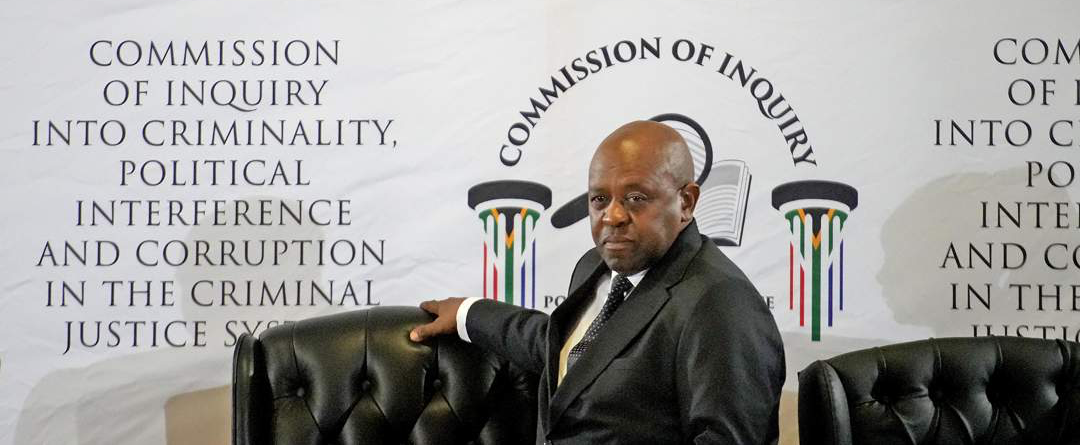PUBLIC OPINION: Premature judgment of the inquiry misrepresents its carefully designed process….
By Ido Lekota
South Africa stands at a critical juncture in its fight against corruption, criminal networks, and the erosion of its criminal justice system. The Madlanga Judicial Commission of Inquiry serves as a pivotal national response, explicitly tasked with investigating criminal syndicate infiltration and political interference within law enforcement, intelligence, the judiciary, and government institutions.
The work of the Madlanga Commission is indispensable. It provides a formal, legal platform to investigate, assess, and verify claims of corruption and criminal interference in these structures. Without such an inquiry, accountability would remain elusive, and public confidence in the criminal justice system would continue to erode.
By promptly referring proven cases for criminal prosecution, recommending institutional reforms, and exposing systemic weaknesses and complicity, the Commission contributes directly to the fight against crime, corruption, and institutional capture.
Unlike the Zondo Commission, which primarily exposed wrongdoing and made non-binding recommendations, the Madlanga Commission wields a strong investigative mandate focused on corruption and criminal infiltration specifically within security agencies and the criminal justice system. It is empowered to summon witnesses, conduct searches, seize evidence, and refer cases for criminal prosecution—essential tools for swift and decisive action needed to restore public confidence in institutions such as the police, judiciary, National Prosecuting Authority, and intelligence services.
Given the seriousness of the allegations, the Commission stands as a guardian of constitutional democracy, charged with revealing corruption and restoring institutional integrity. It promotes ethical and impartial conduct across security forces, officials, judiciary members, media, and civil society—an essential foundation for the faithful execution of its work and for rebuilding public trust in governance and justice. The inquiry proceeds through a phased and methodical process, ensuring allegations and evidence undergo rigorous examination and cross-examination. This structure safeguards fairness and thoroughness in a highly charged adversarial context by:
– Allowing accused parties to respond, upholding constitutional rights such as the right to be heard.
– Subjecting testimony and evidence to careful scrutiny, strengthening the legitimacy and public confidence in the findings.
– Managing sensitive evidence disclosure thoughtfully fully to balance transparency with the right to dignity of all parties.
– Proceeding deliberately, accounting for the complexity of criminal networks and institutional capture.
Lieutenant-General Nhlanhla Mkhwanazi’s testimony as whistleblower and first witness is particularly significant. His firsthand account sheds light on corruption and political interference challenges within security forces and helps the Commission fulfill its constitutional mandate. His evidence lays the groundwork for practical recommendations to strengthen institutional integrity.
Balancing transparency with protecting sensitive evidence critical to ongoing investigations remains a key challenge. The Commission’s authority to hold closed sessions safeguards law enforcement operations while maintaining public accountability.
The media’s role transcends mere reportage. Media outlets bear the responsibility to report accurately, fairly, and with nuance, avoiding prejudgment or premature dismissal of witness testimonies. Given the politically sensitive and high-stakes nature of these hearings, balanced coverage supports democratic transparency and informed public engagement.
Conversely, sensationalism or biased narratives can erode confidence, deepen polarization, and obstruct reform. Such narratives risk undermining public trust in both whistleblowers and the Commission, weakening the inquiry’s legitimacy.
They may provide ammunition for implicated actors to discredit the process, confuse and polarize public discourse, and deter crucial future testimonies.Ultimately, these behaviors threaten to stall essential reforms by distracting focus from evidence and truth—vital elements in restoring integrity within South Africa’s criminal justice system.
The media wields great power and responsibility as watchdog, informer, and democracy facilitator throughout this process. Ethical, informed, and nuanced coverage is indispensable to amplifying the Commission’s impact in exposing corruption, rebuilding trust in the justice system, and advancing a crime-free, democratic South Africa.
For example, recent media reports alleging that Lieutenant-General Mkhwanazi offered “little evidence” during his testimony misunderstand the Commission’s role as a fact-finding, inquisitorial body rather than a court requiring upfront final proof. Mkhwanazi’s testimony initiates an investigative process where all evidence will be rigorously tested before conclusions are drawn.
Premature judgments risk misrepresenting the Inquiry’s carefully designed process and undermining public trust in this essential mechanism for addressing corruption within South Africa’s justice and security institutions.































